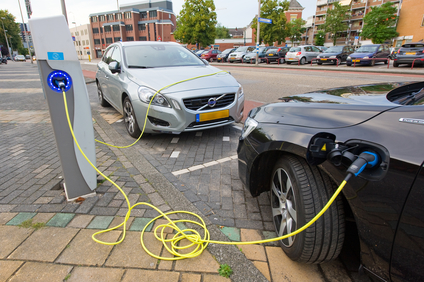Electric car subsidies largely benefit ‘rich’ Tesla and Jaguar drivers


Around half the government fund to stimulate people to drive electric cars has ended up in the hands of ‘rich Tesla and Jaguar drivers’, the Volkskrant said on Wednesday.
Last year, the government said it would fund tax breaks totaling €700m for electric car drivers. But almost half the 25,000 electric cars bought in the Netherlands in 2018 were Teslas and Jaguars with a price tag of €80,000 to €120,000, the paper said.
In particular, the sale of Teslas rose 260% last year.
The paper bases its claims on answers to MPs’ questions given by tax minister Menno Snel in parliament on Tuesday evening.
Prosecco
This means that CDA leader Sybrand Buma’s comments that ‘prosecco-drinking Tesla drivers’ have profited from the tax break at the ‘expense of the ordinary man in the street’ are largely true, the paper said.
It points out that the subsidies for electric cars are mainly funded by higher taxes paid by petrol and diesel car owners.
The government had assumed 11,000 electric cars would be bought in 2018, with an average price of €43,000. Instead, 25,000 were bought for an average of €63,000 each. This, the paper says, means the subsidy scheme has overrun its budget by ‘a couple of hundred million euros’.
The government is trying to encourage more people to drive electric cars and wants to make sure that by 2030 no more petrol-drive cars are bought in the Netherlands.
Thank you for donating to DutchNews.nl.
We could not provide the Dutch News service, and keep it free of charge, without the generous support of our readers. Your donations allow us to report on issues you tell us matter, and provide you with a summary of the most important Dutch news each day.
Make a donation